Dive into our curated list of sustainable brands and see why making the switch to a slow fashion approach is not just important, it is essential! Let’s celebrate style that’s kind to the Earth and explore how we can all make a positive difference in our wardrobe choices!
Impact of Fast Fashion Brands on Our Environment
Carbon Emissions: To every time that you think shopping is a therapy, make sure that it indirectly contributes to a massive carbon footprint. The production, transportation, and disposal of your buying clothes involves a complex web of processes that each release greenhouse gases into the atmosphere. The fashion industry accounts for approximately 10 per cent of global carbon emissions, which is more than the combined emissions of international flights and maritime shipping.
Landfill Pollution: If you are still rooting for the trend of wearing your clothes just for a single time and to not repeat forever, just because you want to maintain a status and reputation, remember that this pile of clothes is thrown in the landfills where they contribute to growing waste mountains. Many of these discarded items are incinerated, further releasing harmful pollutants into the air.
The constant churn of producing, wearing, and disposing of clothes is not just a minor inconvenience—it is a major environmental issue. Each year, the world generates around 92 million tons of textile waste, much of it linked to the fast fashion industry’s insatiable appetite for new trends. On average, people throw away about 70 pounds of clothing annually, adding to the pressure on our landfills and worsening pollution.
Water Usage: Have you ever stopped to think about the water footprint of your favourite cotton shirt? Brace yourself, producing just one shirt takes a jaw-dropping 2,700 litres (or 713 gallons) of water! That’s roughly the same amount of water a person would drink over two and a half years. It is a staggering figure when you realise that the fashion industry is responsible for a whopping 20 per cent of global wastewater.
But it does not stop there. The process of dyeing textiles, essential for giving clothes their vibrant colours, uses a cocktail of toxic chemicals that pours even more pollution into our waterways. This not only harms aquatic life but also threatens the health of communities that rely on these water sources.
Sweatshops and Exploitation: Sweatshops are a dark corner of the fast fashion industry, where the relentless pursuit of cheap production costs results in severe human suffering. Workers in these exploitative environments often face deplorable conditions: cramped and unsafe workplaces, excessively long hours, and wages so low they struggle to meet basic needs.
Sweatshops are not just a distant problem; they are a stark reminder of the real human toll behind the clothes we wear. Addressing this issue requires a collective effort to demand ethical practices, support fair labour conditions, and choose brands that prioritise people over profits.
Microplastic Contamination: Microplastic pollution is one of the most insidious and far-reaching consequences of the fast fashion industry. Every time people wash synthetic garments, millions of tiny microplastic fibres are released into our waterways. These minuscule particles, less than 5 millimetres in size, are too small to be filtered out by most wastewater treatment plants, meaning they end up in rivers, lakes, and oceans. Polyester, nylon and acrylic are among the fibres that shed microplastics.
A Curated List of Sustainable Brands
Stella McCartney
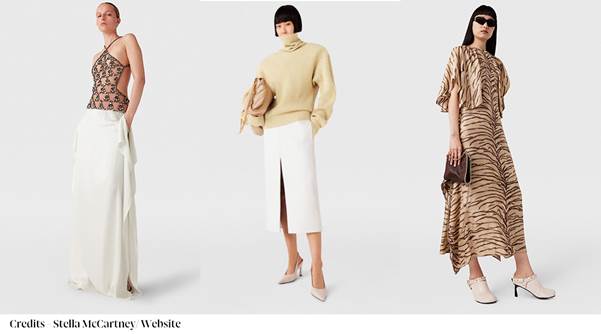
Stella McCartney is widely recognised as a leader in sustainable fashion and uses a range of sustainable materials to minimise environmental impact. These include organic cotton, recycled polyester, and regenerated nylon. The brand also incorporates innovative materials such as vegan leather made from mushroom and grape byproducts, reducing reliance on animal-derived materials and traditional plastics.
Naadam
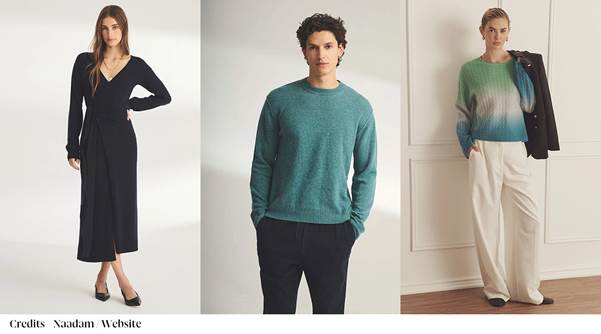
Naadam is a sustainable brand that prioritises ethical sourcing of cashmere from Mongolian herders, ensuring fair wages and animal welfare. It employs eco-friendly practices, such as reducing water usage and avoiding harmful chemicals in production. With a transparent supply chain, Naadam allows consumers to understand the origins of their products, promoting high-quality, durable items that encourage mindful consumption.
Maria McManus
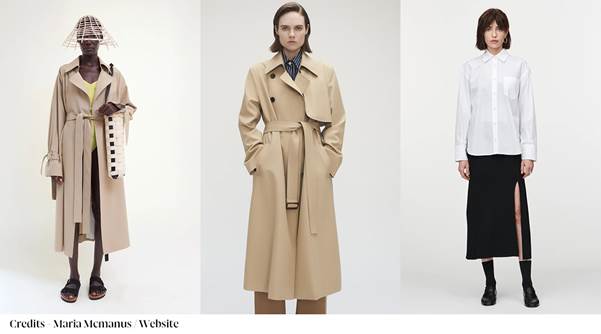
Maria McManus is a sustainable brand that beautifully blends style with conscious living. Founded by designer Maria McManus, the brand focuses on creating timeless pieces using eco-friendly materials and ethical production methods. Each garment is thoughtfully crafted to reduce waste and promote longevity, encouraging customers to invest in quality rather than quantity.
Gabriela Hearst
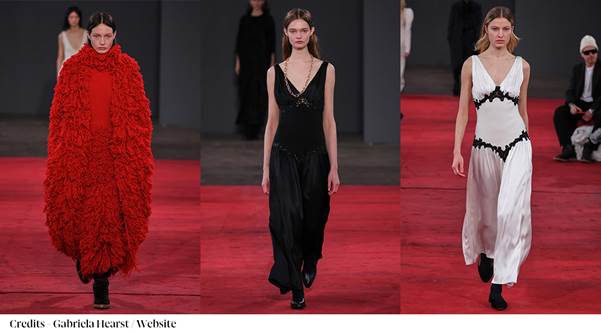
Gabriela Hearst is a standout sustainable brand that redefines luxury through a commitment to ethical practices and environmental responsibility. Founded by designer Gabriela Hearst, the brand emphasises the use of high-quality, natural materials sourced sustainably, ensuring that every piece is both exquisite and eco-conscious. Gabriela’s vision includes a transparent supply chain that values fair labour practices and supports artisans around the world. Her designs are crafted to last, promoting a “buy less, choose well” philosophy that resonates deeply with mindful consumers.
Mfpen
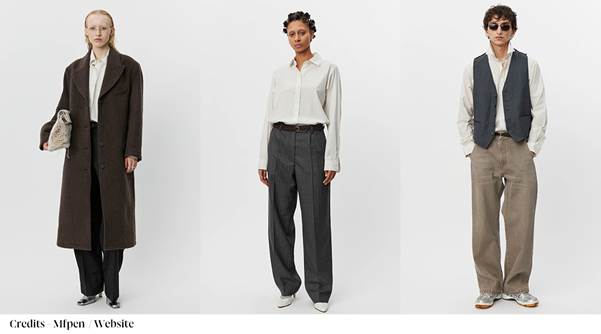
Mfpen takes a thoughtful, innovative approach to fashion, prioritising the use of deadstock and surplus fabrics. The brand sources high-quality leftover materials from European mills, mainly in Italy and Portugal, ensuring that no new fabrics are produced. This commitment extends to its knitwear and jersey collections, which are made from recycled fibres, including pre- and post-consumer wool, cashmere, cotton, and polyester.
Bethany Williams
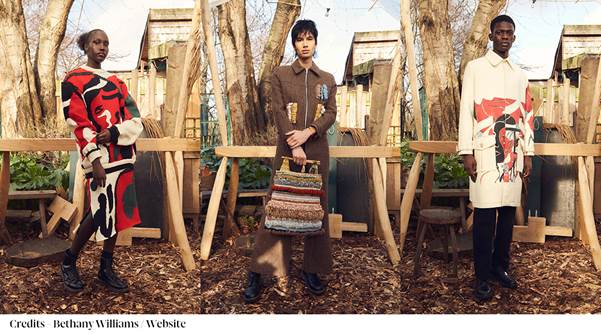
Bethany Williams is a pioneering sustainable brand founded by the London-based designer from the Isle of Man, who believes in the interconnectedness of social and environmental issues. With a background in Critical Fine Art Practice and Menswear, Bethany merges art and fashion to create innovative design solutions. Her brand features collections made from recycled, deadstock, or organic materials, produced in collaboration with local manufacturers and social projects in the UK and Italy. Recognised for her efforts, she won the Queen Elizabeth II Award and Emerging Menswear Designer of the Year at The Fashion Awards in 2019.
Bogdar
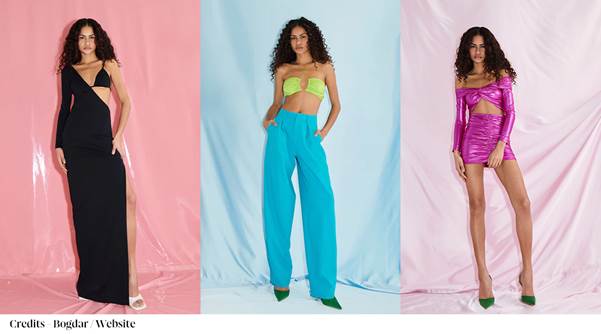
Founded by husband-and-wife duo Teodora and Pavel Lozanov, Bogdar specialises in partywear statement pieces that capture the essence of nightlife. Each item is meticulously crafted in a family-owned atelier in Bulgaria, using high-quality fabrics and innovative designs. The collection is designed for party girls worldwide, emphasising thoughtful production and a commitment to sustainability.
Bleusalt
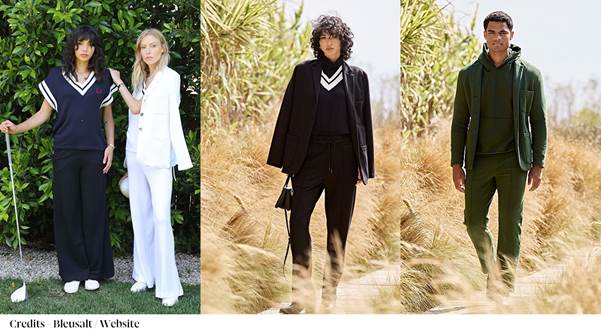
Bleusalt is a luxurious line of seasonless basics made sustainably in the US from the softest fibres on earth. Additionally, Bleusalt promotes a timeless aesthetic, encouraging consumers to invest in durable pieces that transcend trends, further supporting sustainable fashion by reducing waste. Overall, Bleusalt embodies a dedication to both style and sustainability.
House of Dagmar
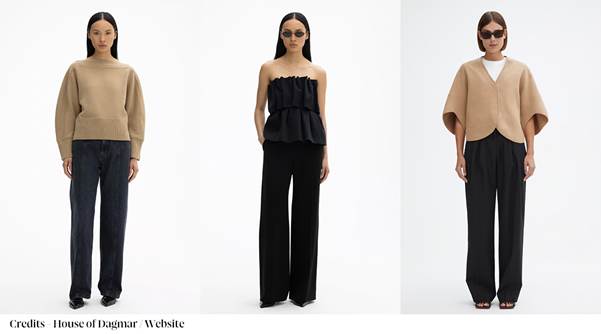
House of Dagmar is a global luxury fashion brand dedicated to creating responsible women’s fashion while celebrating its Scandinavian roots. Known for its minimalistic yet sophisticated and sensual aesthetic, the brand’s collections are designed in Stockholm and produced by carefully chosen manufacturers using high-quality, durable materials.
Founded in 2005 by three sisters in honour of their late grandmother, Dagmar, a talented tailor and model of confidence, the brand embodies her commitment to craftsmanship and timeless style.
Bassike
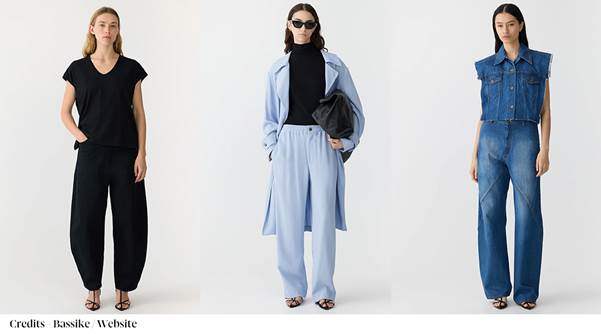
Bassike is all about blending chic aesthetics with eco-consciousness. With a vibrant commitment to ethical practices, Bassike uses luxurious organic cotton, recycled fibres, and low-impact dyes to create stunning pieces that not only look good but feel good too.
Designed and crafted in Australia, the brand champions local manufacturing and fair labour practices, ensuring every item is made with care. Its timeless designs encourage a wardrobe that lasts, promoting a philosophy of mindful consumption. With Bassike, you can rock fashionable pieces while making a positive impact on the planet—talk about a win-win!
Stine Goya
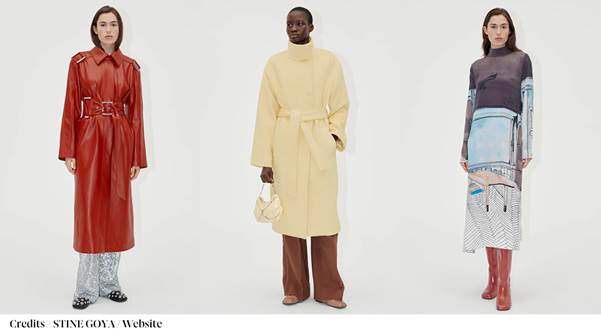
Danish designer Stine Goya launched her eponymous label in 2006 to challenge the minimalist fashion landscape with bold colours and unique prints. Her design philosophy focuses on empowering individuals through timeless, wearable pieces that celebrate self-expression. Each collection features flattering cuts and high-quality, sustainably sourced fabrics, crafted by the in-house team.
Since its beginnings, Stine Goya has expanded significantly, opening four retail stores in Denmark and the UK and partnering with 450 retailers in 30 markets worldwide. The brand is committed to sustainable practices, promoting responsible production while encouraging a vibrant and confident approach to fashion.
Omnes
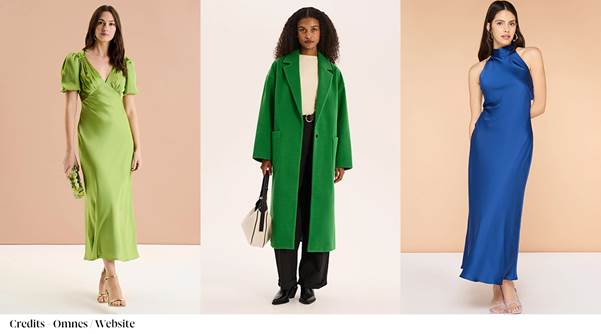
Omnes is committed to transparency in its supply chain, working with certified manufacturers who adhere to fair labour practices. Its designs emphasise timeless styles that encourage longevity, reducing waste and promoting mindful consumption. By blending modern aesthetics with sustainability, Omnes empowers consumers to make responsible fashion choices without sacrificing style.
Mother of Pearl
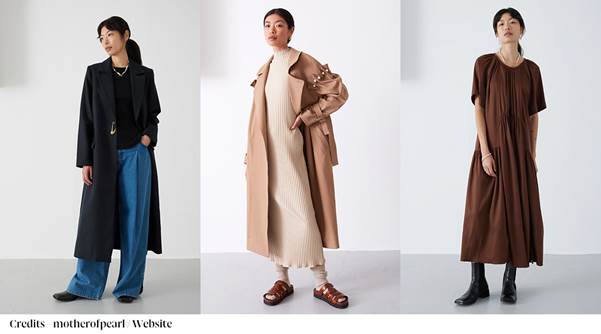
Mother of Pearl is a contemporary womenswear brand that celebrates individuality, authenticity, and sustainability, embodying the mantra of being classic yet never boring. Founded in 2002, the brand creates fashion with wit, heart, and conscience, offering contemporary designs that make a statement without harming the planet.
Under the leadership of creative director Amy Powney, who rose from the cutting-room floor to her current role, Mother of Pearl is dedicated to reducing its environmental impact and driving change across the fashion industry. The brand is committed to crafting a brighter, more responsible future in fashion.



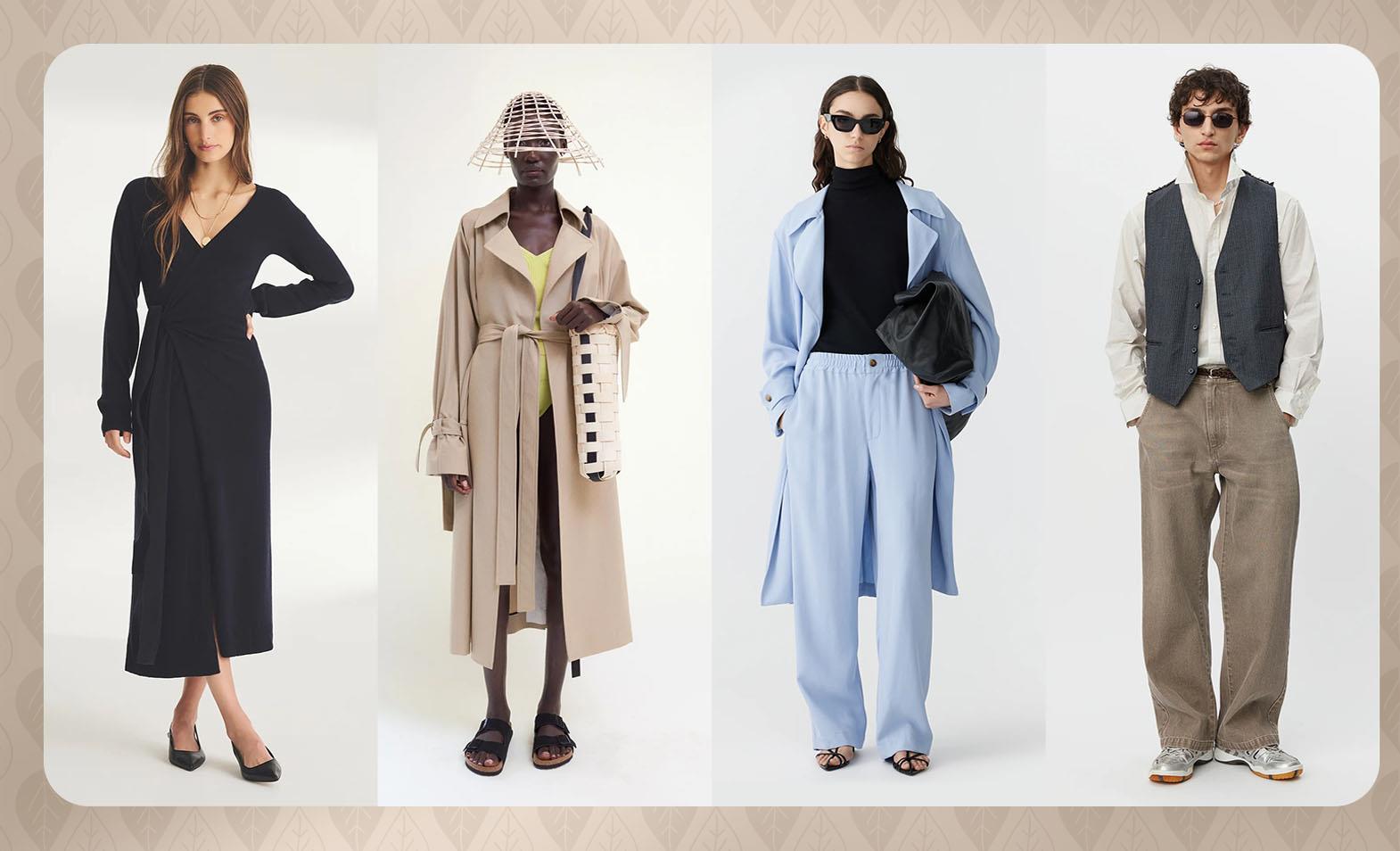
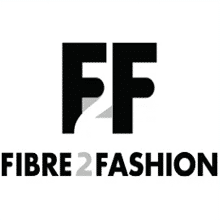



Comments